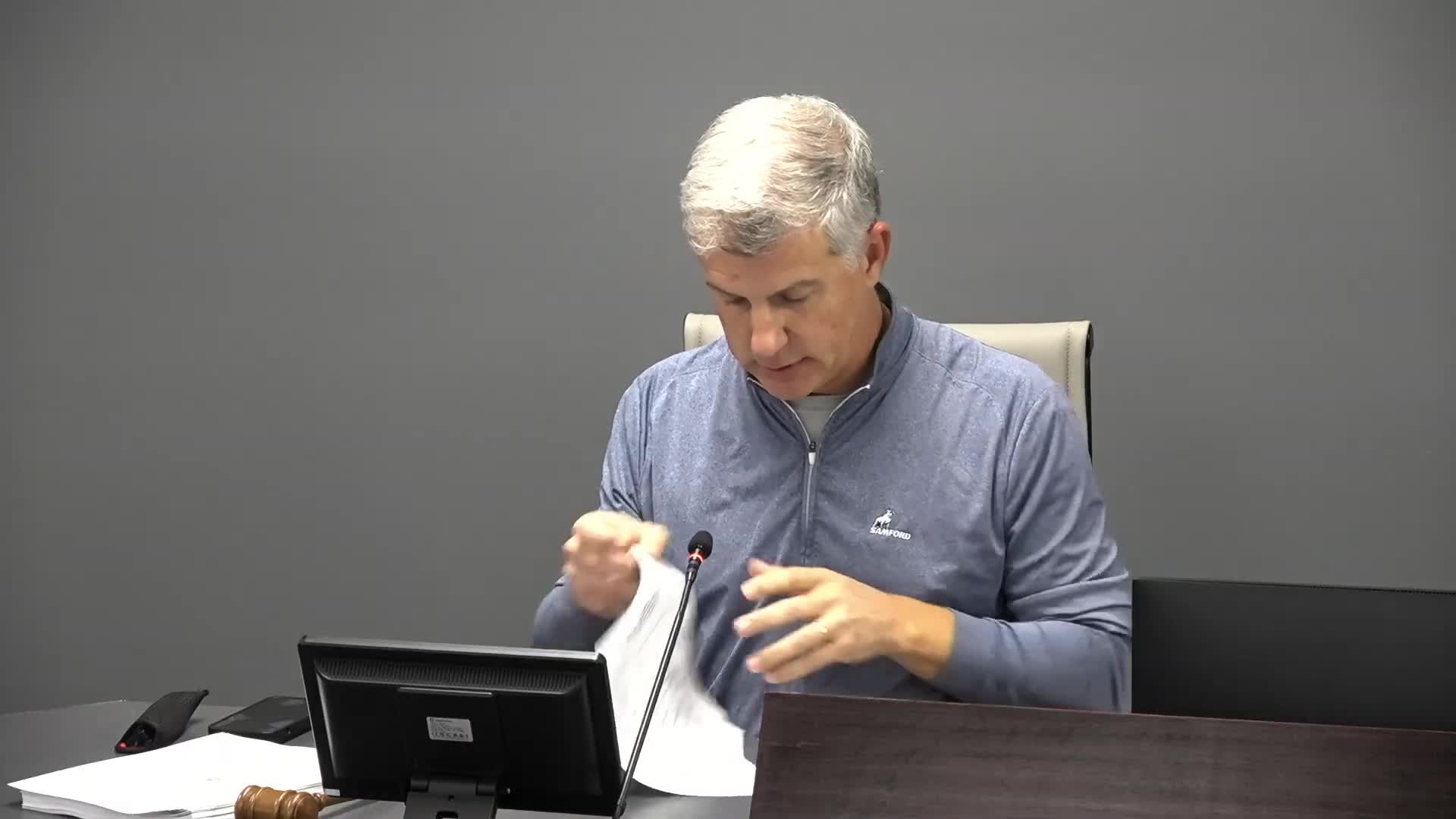Williamson County planning panel denies Owen Valley wastewater site plan and concept plan after public outcry over Allison Chapel cemetery
Get AI-powered insights, summaries, and transcripts
Subscribe
Summary
The Williamson County Planning Commission denied both the Owen Valley wastewater site plan and the related concept plan after staff said the applicant’s archaeological and groundwater analyses were incomplete and dozens of residents, descendants and preservation groups urged protection of the Allison Chapel school and cemetery.
The Williamson County Planning Commission on an order taken during a public meeting denied a wastewater treatment site plan and a related concept plan for the 72‑lot Owen Valley subdivision after staff and residents raised concerns that the applicant had not adequately identified or protected an historic African American church, school and cemetery on the property.
County planning staff told commissioners the applicant’s filings contradicted evidence received from residents and outside reviewers and lacked key studies staff would require before approval. "Staff can no longer recommend approval of the site plan at this time," staff said, citing the need for additional groundwater data, a full archaeological survey, research into historic designation and a title opinion to confirm whether the area had previously been set aside as a separate parcel.
At the meeting dozens of residents, descendants and preservation groups described visible artifacts and family burial sites and urged the commission not to allow a subsurface drip dispersal or other septic infrastructure near graves. "We respectfully and fervently impress upon this planning commission the prohibition of development at this site to prevent the desecration of graves," said Reverend Boyce Wilkins Jr., pastor of Shorter Chapel AME Church. Harpeth Conservancy, the Heritage Foundation of Williamson County and members of the Hatcher family pressed for a preservation tract of at least five acres and for independent archaeological verification.
The applicant’s representative, Richard House of SCC, told the commission the team had received new information that morning and "we are agreeable to the deferral till the February meeting," but commissioners ultimately moved to deny the applications. Commissioners cited an incomplete record on the extent of the cemetery, uncertainty about groundwater flow and the lack of assurances the proposals met county zoning and subdivision requirements.
Votes at a glance - Item 17 (Owen Valley wastewater site plan): motion to deny passed (voice vote; recorded as majority aye with one no). Staff had asked for seasonal groundwater depth and flow-gradient studies and a full archaeological survey before approval. - Item 18 (Owen Valley concept plan, 72 lots): motion to deny passed (voice vote; recorded as majority aye with one no). Commissioners noted a concept plan cannot be approved without an approved wastewater site plan and found the application incomplete. - Consent and routine business: minutes and the consent agenda were approved earlier in the meeting. The commission approved multiple preliminary and final plats (Meadowside phases 1–2, Villages of Triune West/East, Vineyard Valley phases and others) with standard conditions and required off‑site improvements where noted.
Why it mattered The denial follows repeated public testimony that artifacts and human remains persist on the site and that existing developer surveys under‑reported the scope of the Allison Chapel (also recorded in the hearing as "Lisonbee"/"Alisona") school and cemetery. Staff warned that a subsurface drip dispersal system placed near an incompletely delineated burial ground could create long‑term contamination or physical disturbance of graves and recommended proceeding "with an abundance of caution."
What happens next Staff recommended deferral to February 2026 as a realistic timetable for the additional geotechnical and archaeological work they requested. Commissioners and staff said a denial would not legally bar the project from being refiled in the future if the applicant addresses the reasons for denial. The applicant may revise and resubmit the wastewater site plan and the concept plan after completing the requested studies or consider withdrawing and returning with a redesigned proposal.
The meeting also included an engineering update on the Terra Vista drainage and erosion bond, where consultants said geotechnical work is about 75% complete and state notice‑of‑coverage information remains outstanding. The commission adjourned following routine business.
